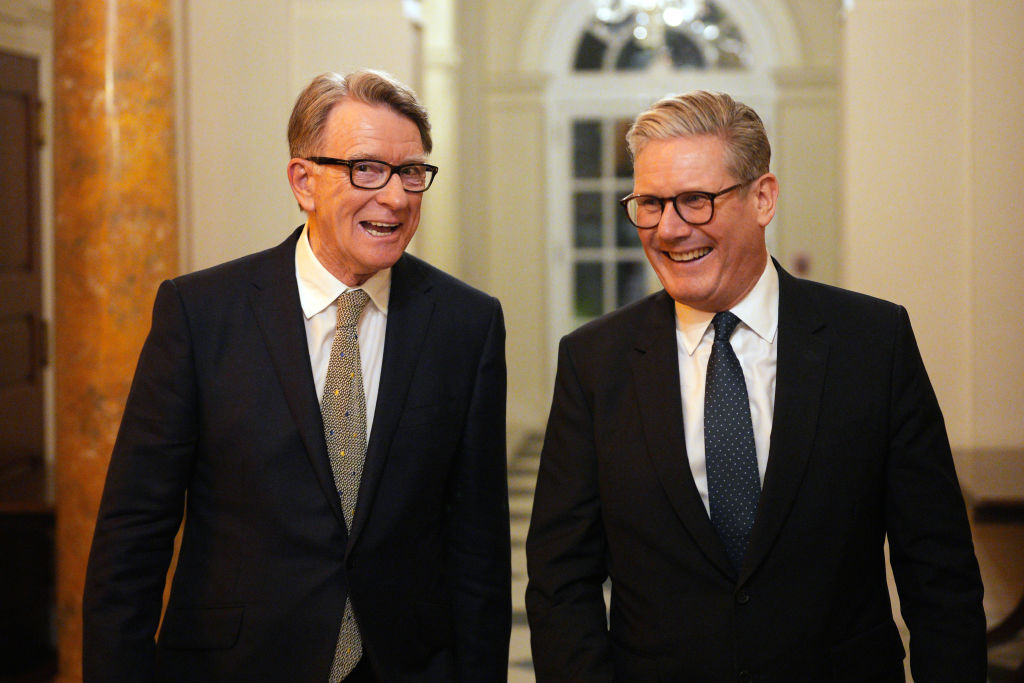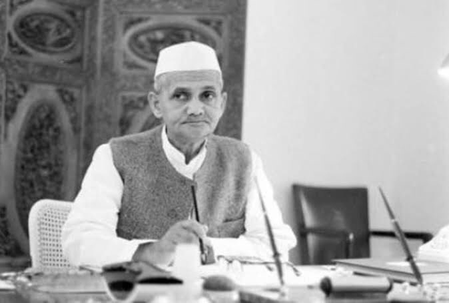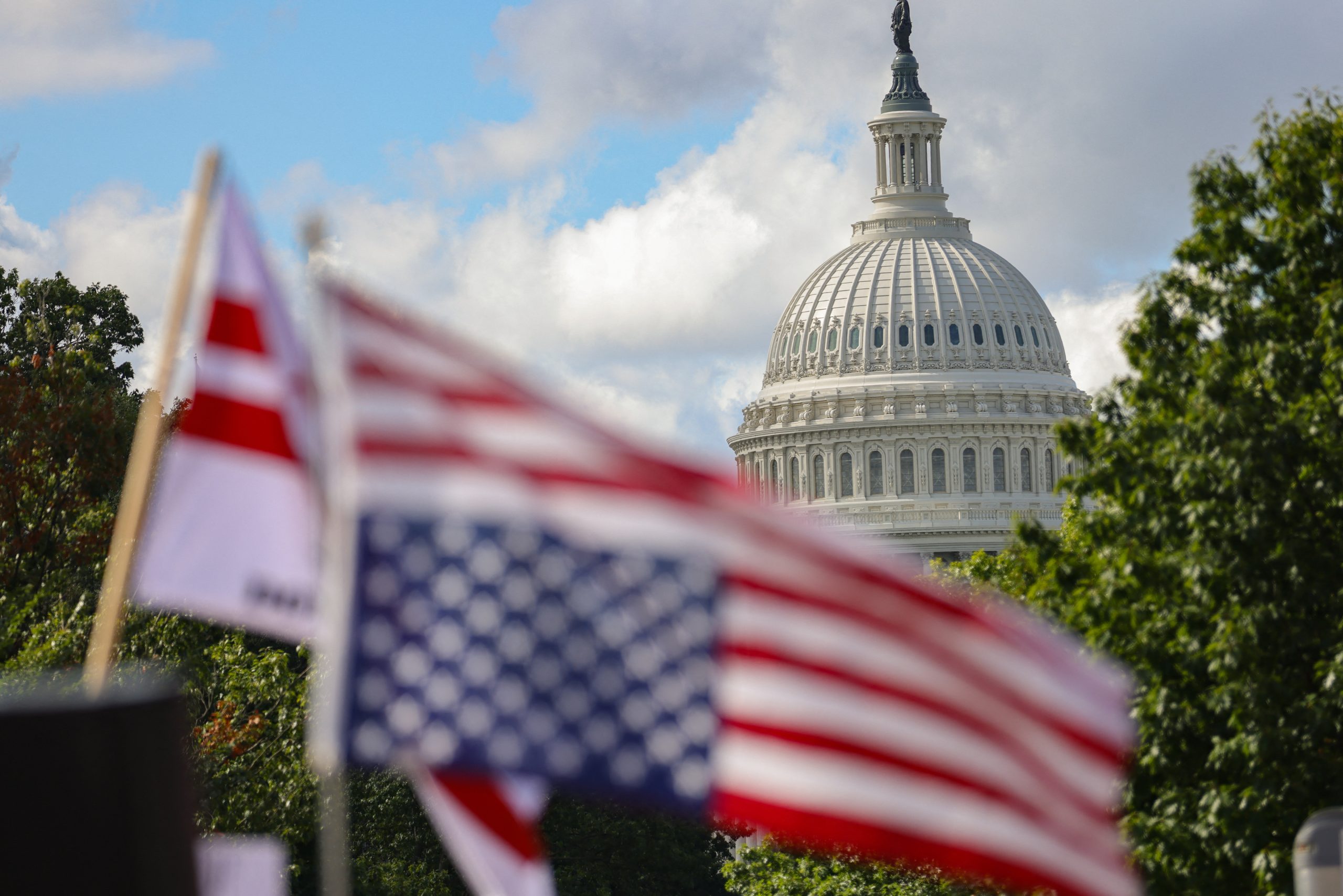By Rachel Cunliffe
Copyright newstatesman

PMQs is never easy for a prime minister, but some weeks contain more landmines than others. This was a landmine week: the continued sense of chaos after the departure of Angela Rayner and subsequent reshuffle; the tension of the ongoing deputy Labour leader contest; yesterday’s shock Israeli strike on Hamas officials in Doha; the arrival of the Israeli President Isaac Herzog in Downing Street later today; and the revelations about Peter Mandelson, now Keir Starmer’s ambassador to Washington, and his relationship with convicted sex trafficker Jeffrey Epstein whom he once called his “best pal”.
It was on the last of these that Kemi Badenoch chose to direct her focus, with three pointed questions regarding Mandelson’s position. Did the Prime Minister have confidence in the ambassador? Did he know about the friendship, which persisted during the period Epstein’s child trafficking occurred? What about the suggestion, reported in the Telegraph, that as Gordon Brown’s business secretary in 2010 he brokered a £1bn deal with the notorious financier – a deal which took place after Epstein’s first conviction and imprisonment? Would he publish the relevant documents?
This is extremely difficult ground for Starmer. It is also an uncommon tactic for Badenoch. For once, her questions were short and to the point. They deprived Starmer of his usual tactic of widening the debate to encompass a raft of Tory failures and turn the attack back on her. They kept hammering at a point the Prime Minister clearly did not want to discuss. You can always tell when Starmer feels on the ropes: his voice becomes low and monotone as he switches into lawyer-mode, retreating behind the shield of statements like “full due process was followed”, “subject to the usual procedure”. He reiterated that he had “confidence in the ambassador”, but was clearly cornered, running out of ways to avoid the implications of what Badenoch was asking.
And then the Tory leader changed course. Derailing her own momentum, she tried to broaden out her attack, associating the Epstein-Mandelson issue with the row over Angela Rayner’s stamp duty bill. She couldn’t resist the chance to gleefully point out that “he’s got a wholly new frontbench”. Starmer was visibly relieved, firing back the jibe he must have been waiting to use about Badenoch’s inability to think on her feet last week: “I see she’s finally catching up with the questions she should have asked last time about the deputy prime minister.” Badenoch’s attempt to get back on track by somehow linking Mandelson to the deputy leader contest fell flat, undermining her earlier progress. Still, landing three questions out of six is a definite improvement.
The danger wasn’t over for Starmer, though. Ed Davey picked up on the topic of Mandelson, wondering what other revelations might be in store and if the US might have compromising information that could affect his ability to be an effective ambassador – at a moment when the UK needs strong representation in the White House more than ever. Starmer looked rattled as he repeated his pre-used “due process” lines. Is the ambassador’s position in jeopardy? The debate will not end here.
And then there was Israel. The Prime Minister began the session with a statement condemning yesterday’s Doha strikes and assuring the House that he “will be absolutely clear that we condemn Israel’s actions” when he meets Herzog later. For many in the Commons (including on the Labour benches, though they kept quiet today) that does not feel like enough to justify inviting the Israeli President to Downing Street. Adding to the unease is, as Green MP Carla Denya noted, the presence of 51 Israeli arms companies exhibiting their products at a trade fair in London this week.
But the fiercest exchange came between Starmer and the SNP’s Westminster leader Stephen Flynn. “Would he invite Vladimir Putin into No 10?” Flynn roared. Starmer responded by noting everything the UK government has done so far to put pressure on the Israeli government: “We have suspended arms that could be used in Gaza. We have sanctioned extremists. We suspended trade talks.” He continued, “I will not give up on diplomacy – that is the politics of students.” Beside him on the frontbench sat David Lammy, Foreign Secretary until very recently, nodding furiously. (For an assessment of Lammy’s record on Gaza, read Megan Gibson’s insightful reflections today.) It is notable to see Starmer draw such a distinction between the tightrope the government is trying to walk on the issue of Palestine and the calls for a much tougher stance (calls which are already becoming a central part of the deputy leadership contest). One can imagine how some Labour backbenchers will feel about their views being dismissed as “student” politics.
There was no Reform question today, but Starmer got his chance to take the fight to Nigel Farage thanks to Labour MP Simon Opher, who heralded the rollout of the chicken pox vaccine and asked the PM to condemn other parties who give a platform to anti-vax conspiracy theories. No prizes for guessing who he was talking about, after Reform’s conference included a speaker linking the Covid vaccines to members of the royal family developing cancer. The party has tried to distance itself from the claim, making it an issue of “free speech”. Farage was in the chamber, along with Richard Tice, as Starmer warned the House that “These dangerous conspiracies cost lives”. “Reform can’t be trusted with our NHS,” he continued – an attack line Labour is desperately hoping will strike fear into the hearts of the British public about the party that has now led in the past 101 polls.
But this was not Starmer’s finest week. Connecting all the issues on which he was challenged – a reshuffle consisting almost entirely of moving existing ministers between jobs, confronting Israel over Gaza, what to do about Mandelson – is a unifying thread of weakness, of reluctance to be proactive and take a robust stance until forced by external events to do so. That’s an accusation that has haunted Starmer throughout his first year in office. And, even with Badenoch blowing herself off course, it was the impression given by today’s PMQs session.
[See also: Farage rises. Burnham watches. But Starmer fights on]



